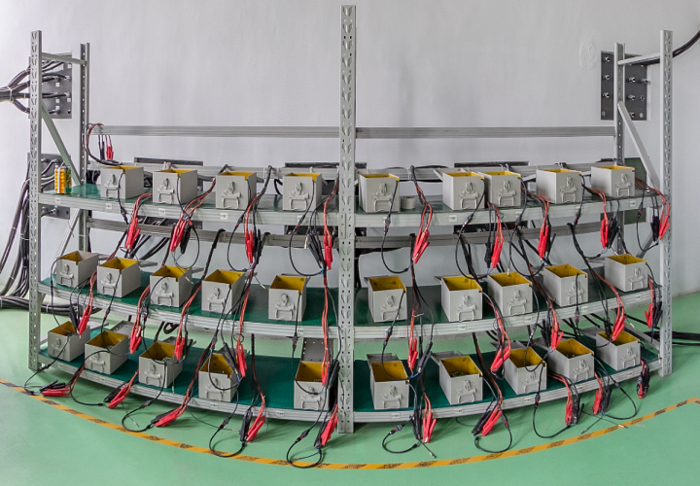Comparison of the advantages and disadvantages of lithium iron phosphate and ternary lithium batteries.
Advantages of lithium iron phosphate batteries.
1, the use of safety: lithium iron phosphate battery crystal P-O bond solid, difficult to decompose, even at high temperatures or overcharge will not be as lithium cobalt acid structure collapse fever or the formation of strong oxidizing substances, so it has good safety. Lithium iron phosphate battery after rigorous safety testing, even in a collision, puncture will not explode.
2, life improvement: lithium iron phosphate power battery, cycle life of more than 2000 times, the standard charge (5 hours rate) use, can reach 2000 times. The same quality of lead-acid batteries at most 1 ~ 1.5 years time, while lithium iron phosphate batteries used under the same conditions, the theoretical life will reach 7 ~ 8 years.
3, high-temperature performance: lithium iron phosphate battery thermal peak can reach 350 ℃ -500 ℃, while lithium manganate and lithium cobaltate only at about 200 ℃. Wide operating temperature range (-20C – 75C), with high temperature resistance characteristics.
4, large capacity: the battery is often in the full not put out under the conditions of work, the capacity will quickly lower than the rated capacity value, this phenomenon is called the memory effect. Like nickel-metal hydride, nickel-cadmium batteries have memory, while lithium iron phosphate batteries do not have this phenomenon, no matter what state the battery is in, can be used as it is charged, no need to first put out and then recharge.
5, light weight: the same specification capacity of lithium iron phosphate battery volume is 2/3 of the volume of lead-acid batteries, the weight of lead-acid batteries 1 / 3.
6, environmental protection: lithium iron phosphate batteries are non-polluting, in line with European RoHS regulations.
7, fast charging: can be high current 2C fast charge and discharge, 1.5C charging under a special charger within 40 minutes to fill the battery, starting current up to 2C
Disadvantages of lithium iron phosphate batteries.
1, lithium iron phosphate battery cathode vibration density is small, the density is generally in the 0.8 to 1.3 or so, large volume.
2, poor electrical conductivity, slow diffusion of lithium ions, high times when charging and discharging, the actual specific capacity is low.
3, poor low-temperature performance of lithium iron phosphate batteries.
4, lithium iron phosphate battery single cell life is long, in about 2000 times, but the life of lithium iron phosphate battery group is short, generally in about 500 times.
Li-ion battery advantages.
1, high voltage platform. The higher the voltage platform, the greater the specific capacity, certainly the same volume, weight, or even the same AH battery, the voltage platform is higher than the ternary lithium battery range farther. Ternary material voltage platform is significantly higher than lithium iron phosphate, high voltage can reach 4.2 volts, the discharge platform can reach 3.6 or 3.7 volts.
2, high energy density
3, high vibranium density
Li-ion disadvantages.
1, poor safety
2, poor high temperature resistance
3、Poor life span
4, poor high-power discharge
5, the elements are toxic, ternary lithium batteries high-power charge and discharge temperature rises sharply, high temperature release of oxygen is very easy to burn.
